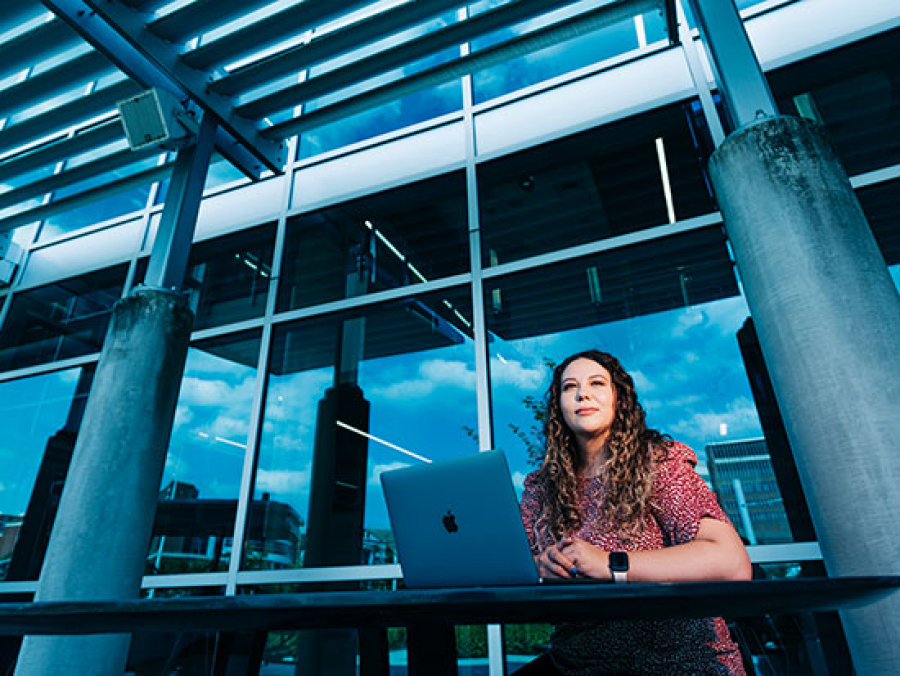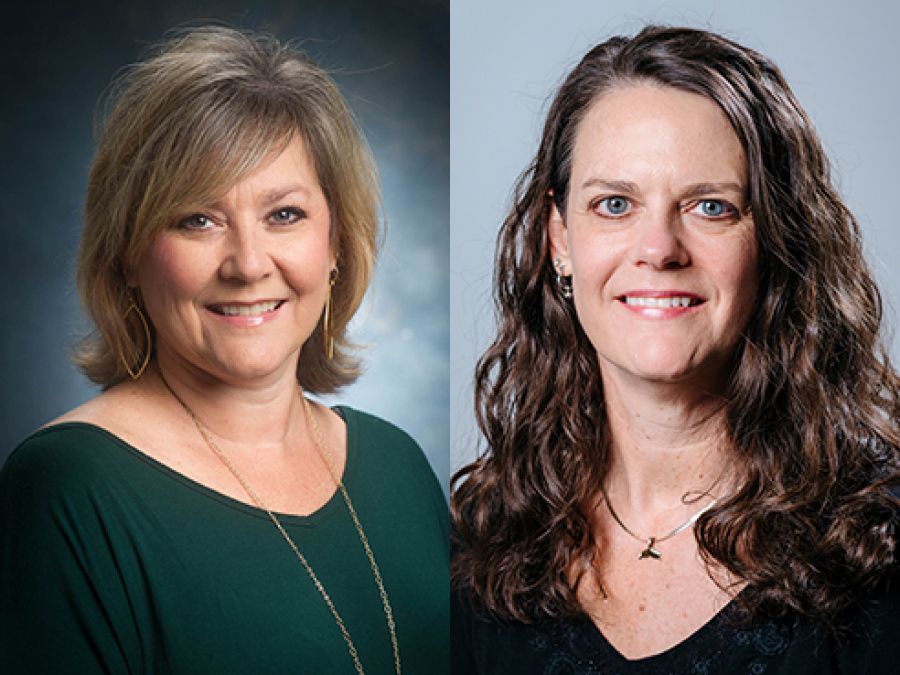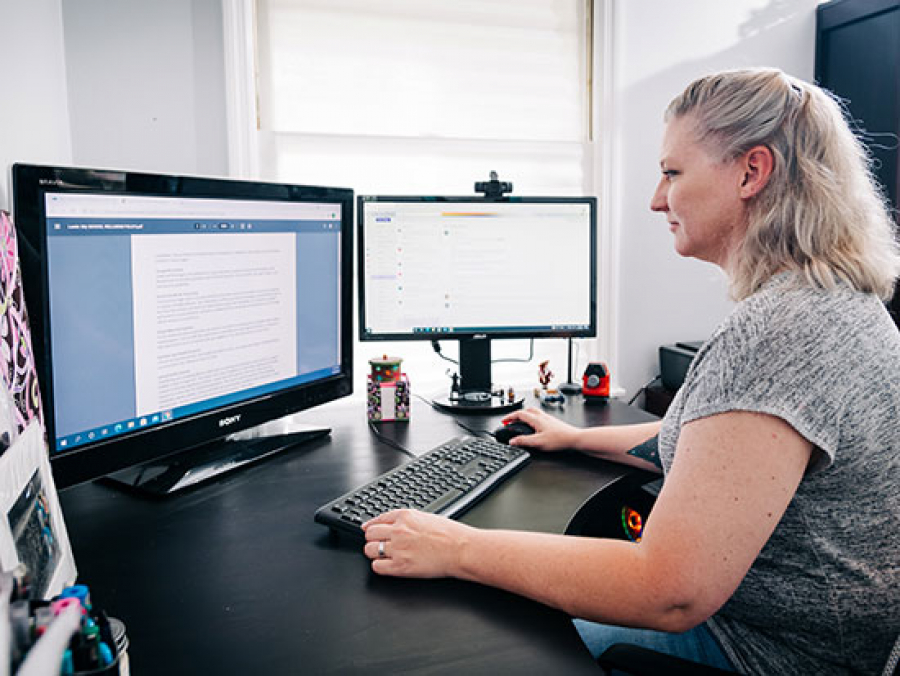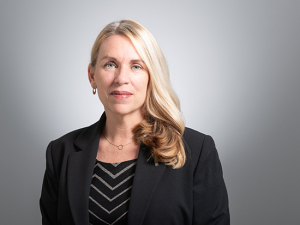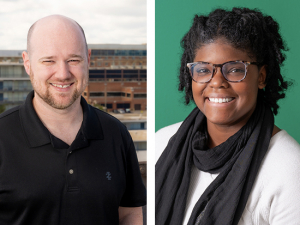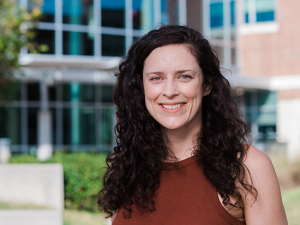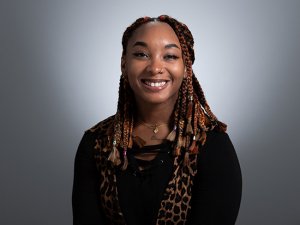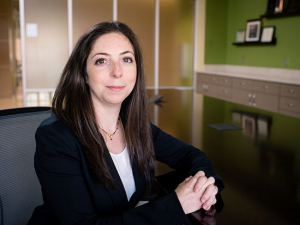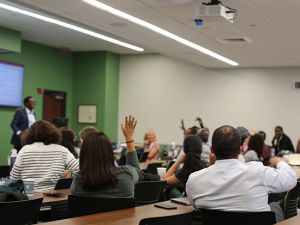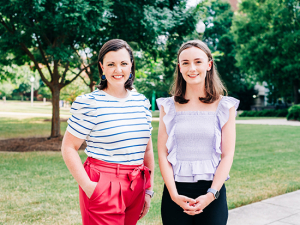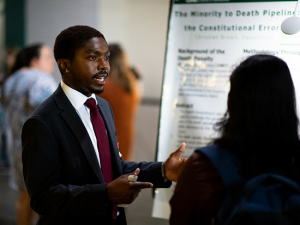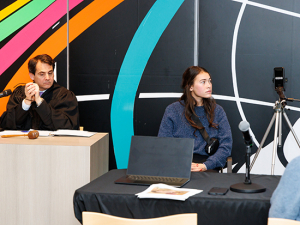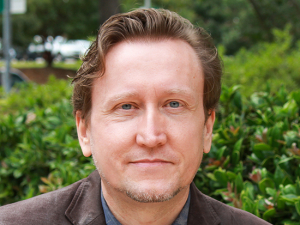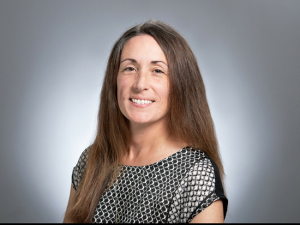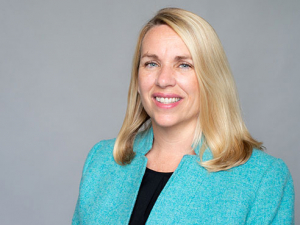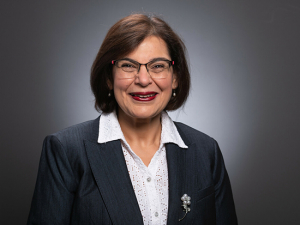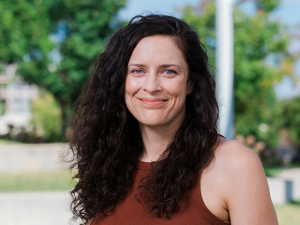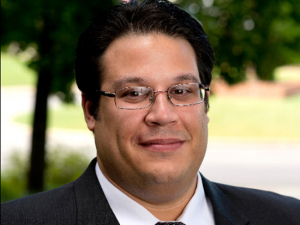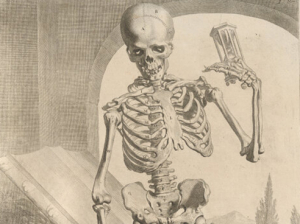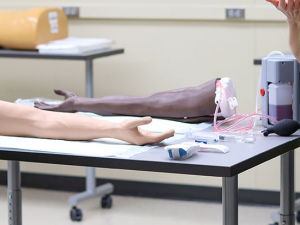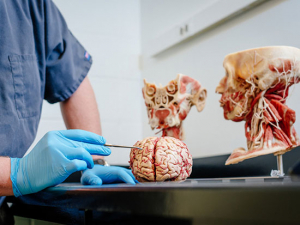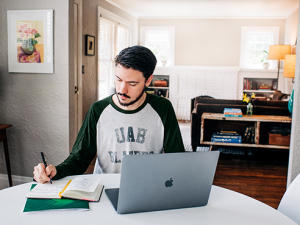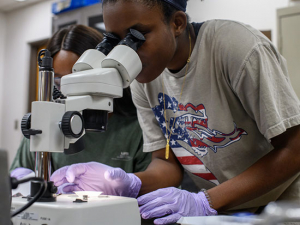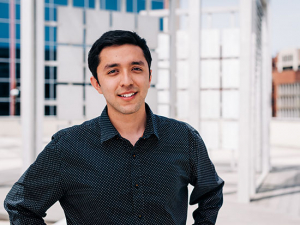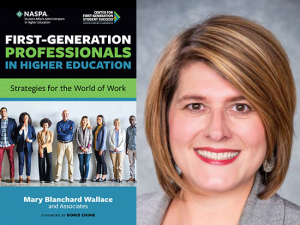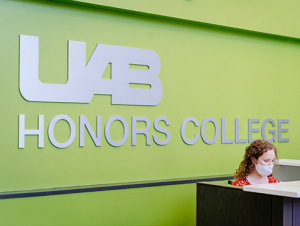| See more from UAB Visual Content |
As the state’s only Level I adult trauma center, UAB Hospital is the site of more than its fair share of sad, stressful situations and also home to many miracles. In 2016, more than 4,400 babies were delivered here, including 146 sets of twins. As of July, more than 74 people found new life as a link in UAB’s living-donor kidney-transplant chain.
During each birth and death, surgery and MRI, transplant or chemotherapy treatment, chaplains from UAB Pastoral Care are with patients and clinicians — to offer compassion and help them remember the things that bring meaning, strength and hope to their lives during trying times.
During the holiday season, the pastoral care department’s mission becomes especially meaningful, said Director Malcolm Marler.
“The holidays have a way of turning the volume up on feelings,” he said. “They can make you feel good, grateful or thankful, or, if you’re going through a hard time, it can accentuate that and make it a more challenging experience.”
That’s where the chaplains enter. Each UAB chaplain has an undergraduate degree from an accredited college and a master of divinity degree from an accredited seminary, and each is ordained, licensed or endorsed by a faith group. Additionally, each has completed at least 1,600 hours of clinical training to be a chaplain in a health care setting and has demonstrated competency in 33 standards of care as judged by a professional committee of peers. They see patients, loved ones and staff in UAB Hospital and outpatient facilities seven days per week, totaling about 150-160 patients per day.
|
Being present in the moment is one of the main tenets of UAB’s pastoral care group, because they may only have one chance to interact with a person before their paths diverge. |
Their goal is to give clients a sense of peace and comfort, regardless of their religious faith. Marler, who grew up the son of a Southern Baptist preacher, is an Episcopalian priest, but as a hospital chaplain, does his best to “meet people where they are,” he said.
“We’re taught not to make assumptions,” he said. “We want to help them discover and remember where their meaning comes from.”
Prioritizing compassion
Chaplains meet people who need their services in varying ways. Staff members may recognize when a patient could use a chaplain’s visit, or a chaplain might meet a patient’s family member by chance in an elevator. The chaplain on call is paged during emergencies, but Marler said that’s not the full extent of their jobs.
“A lot of people think about us as emergency responders, but that’s not the primary interactions we have,” he said.
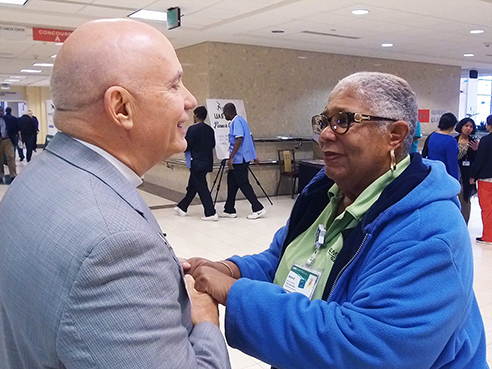 “We have to do what we can in the time we have and remember that our job isn’t just a task, but a relationship where we can use our skills to connect with another human being,” said Malcolm Marler, director of UAB Pastoral Care (left). More than a quarter of the time, Marler said, the chaplains are interacting with staff; chaplains are assigned to each patient-care unit to spend time developing relationships with the clinicians and staff members who work there.
“We have to do what we can in the time we have and remember that our job isn’t just a task, but a relationship where we can use our skills to connect with another human being,” said Malcolm Marler, director of UAB Pastoral Care (left). More than a quarter of the time, Marler said, the chaplains are interacting with staff; chaplains are assigned to each patient-care unit to spend time developing relationships with the clinicians and staff members who work there.
“For us, developing relationships — to know one another as best we can — is what it’s all about,” Marler said. “We want employees to know the name of their chaplain and what it’s like to be cared for and listened to.”
Though each chaplain comes with his or her own faith, Marler said the job is not to convert, preach or proselytize, but simply to show compassion to those who might need it. The team focuses on asking questions and being a good listener, which helps form a connection between the chaplain and the person in need. In a world in which political or religious debate can spark at any time, Marler said knowing how to listen and to value another person’s opinion as you would want your own valued is key.
“You should always ask the extra question,” Marler said. “Our guideline is always to try to ask more questions, because that connects people more than debating or trying to convince them you’re right.”
Being present in the moment is one of the main tenets of UAB’s pastoral care group, because they may only have one chance to interact with a person before their paths diverge.
|
“Our goal is to make a difference with the person in front of us, and think about what we can do for them when they’re not.” |
“It may be your one shot to help people find meaning in this life experience,” Marler said. “We have to do what we can in the time we have and remember that our job isn’t just a task, but a relationship where we can use our skills to connect with another human being.”
Practicing self-care
The primary goal of UAB’s pastoral care team it to take care of others; however, to do that, the chaplains have to prioritize taking care of themselves. For some, that means taking refuge in their personal faith and leaning on family and friends. For others, such as Marler, it means seeking out a therapist to talk through what he sees during his work. But the team also leans heavily on each other, filling each other in on the tough situations they’re encountering.
“Self-care is probably our biggest challenge and our most required skill set,” he said. “We walk with people through heavy, emotional times. We have to make sure we take care of ourselves, and we all do that in different ways — whether it’s through a therapist or through something like exercise. You won’t have an unending supply of compassion if you don’t renew yourself.”
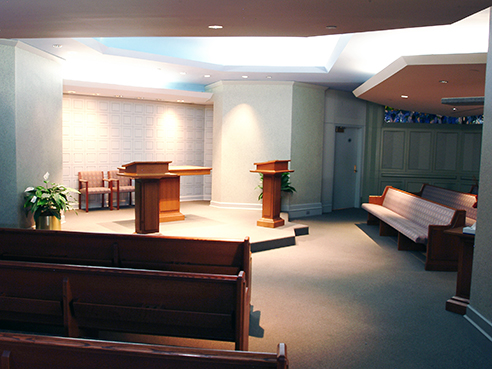 The pastoral care offices are located in the UAB Hospital West Pavilion next to the UAB Hospital Interfaith Chapel.Training and teaching
The pastoral care offices are located in the UAB Hospital West Pavilion next to the UAB Hospital Interfaith Chapel.Training and teaching
When Marler became director of the pastoral care unit eight years ago, there were 11 chaplains. Now, there are 33, including chaplain residents and several part-time employees.
“We tripled in size because we build relationships, and the UAB administration sees a need for that,” Marler said.
The seven chaplain residents undergoing training at UAB right now have the unique experience of doing a one-year residency at UAB, where they will encounter various types of situations and a large, diverse population — from the physicians to patients and their families.
|
“But it’s not about how many people you see, but the difference you make with the persons you do see.” |
Pastoral care residents have assigned units much like the staff chaplains, only fewer. Marler said it’s important to ensure they understand that seeing fewer people doesn’t mean their impact is less.
“The need at UAB is overwhelming,” Marler said. “You see traumas, you see strokes, and you develop this tendency to try to see as many people as possible,” Marler said. “It’s not about how many people you see, but the difference you make with the persons you do see. We’re trying to teach our residents that everywhere you go has the possibility for an encounter that changes someone’s day.”
The pastoral care team also works with locals throughout Alabama to train religious organizations and community groups in the art of pastoral care, to help continue the team’s mission when the patient or loved one leaves UAB’s facilities.
“If a patient can’t go to the pharmacy for themselves, get to their next doctor’s appointment, have nutritional meals or have someone come over so they aren’t lonely, we want to extend the hospitality care to them when they go home through the development of a support team for them,” Marler said.
It’s important to train others to exercise compassion, he said.
“Our goal is to make a difference with the person in front of us and think about what we can do for them when they’re not,” Marler said.
A supportive workplace culture
|
To reach out to a UAB Pastoral Care chaplain, visit uabpastoralcare.org/contact. |
The pastoral care unit is just part of the larger patient-focused environment at UAB, Marler said. Knowing that patients are attended well in all aspects of their care makes the chaplains’ jobs easier and more enjoyable.
“I’m grateful to work in a place where healing takes place, in so many ways,” Marler said. “I always ask people, ‘Are we being kind to you?’” Marler said. “I hear stories about how UAB people are being amazingly kind. Everyone is finding ways of trying to be kind and caring to people. We’re not the only ones.”
